1 Introduction
Most influential people

Christopher Columbus
- Brought to America
- horses
- cattles
- pigs
- goats
- small pox
- Took to Europe
- smoking
- syphilis

Adam
- first man
- sin on the human race

Highlight
- sin of Adam
- forgiveness and a new beginning in Christ
- salvation and sanctification
- words of life and hope for all
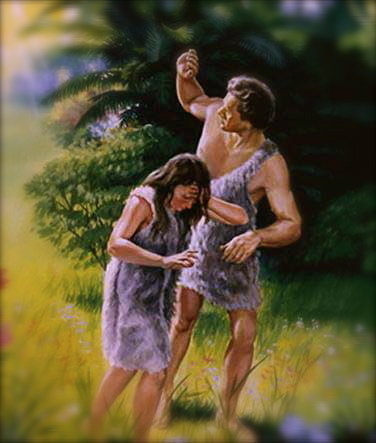

Recap
- salvation provided by God
- through Jesus Christ
- imputed to all on the basis of faith
- example of Abraham

Recap
- in Romans 5, broader perspective
- our salvation as the grounds for boasting
- certainty of entering into "the hope of the glory of God"
- boasting in our present tribulations
- based on Christ's death and the work of the Holy Spirit
Today
- Salvation
- curse of Adam
- God's cure in Christ
- Obedience
- Adam's disobedience
- Christ's obedience
- Christ's work
- promise of the forgiveness of sins
- new identity
- new beginning in Christ
Romans 5:12-14
12 So then, just as sin entered the world through one man and death through sin, and so death spread to all people because all sinned–
13 for before the law was given, sin was in the world, but there is no accounting for sin when there is no law. 14 Yet death reigned from Adam until Moses even over those who did not sin in the same way that Adam (who is a type of the coming one) transgressed.
Romans 5:15-17
15 But the gracious gift is not like the transgression. For if the many died through the transgression of the one man, how much more did the grace of God and the gift by the grace of the one man Jesus Christ multiply to the many! 16 And the gift is not like the one who sinned. For judgment, resulting from the one transgression, led to condemnation, but the gracious gift from the many failures led to justification. 17 For if, by the transgression of the one man, death reigned through the one, how much more will those who receive the abundance of grace and of the gift of righteousness reign in life through the one, Jesus Christ!
Romans 5:18-21
Consequently, just as condemnation for all people came through one transgression, so too through the one righteous act came righteousness leading to life for all people. 19 For just as through the disobedience of the one man many were made sinners, so also through the obedience of one man many will be made righteous. 20 Now the law came in so that the transgression may increase, but where sin increased, grace multiplied all the more, 21 so that just as sin reigned in death, so also grace will reign through righteousness to eternal life through Jesus Christ our Lord.
Structure
- Similarity between the act of Adam and that of Christ (12-14)
- Contrasts between Adam and Christ (15-17)
- The result of the work of our Lord (18-21)

The Similarity (12-14)
Two connections


Adam

The Wages of Sin
- wages is death
- for Adam (Gen 2:16-17)
- for all (Rom 6:23)


From Adam to Moses
- all have died
- not for their sins
- Law was not yet given
- their sins were not a transgression of God's commandments
- sin existed, but not imputed
- but all sinned IN Adam
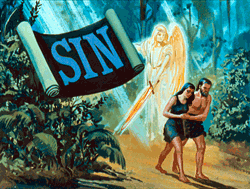
When Adam sinned
- not "we all sin BECAUSE Adam sinned"
- "we all sinned WHEN Adam sinned"
- all are guilty of sin in Adam
- thus under divine death penalty

Unfair?

Because of Adam?
- yes (Rom 5:12-14)
- also because we have sinned (Rom 3:23)

Bad news to good news
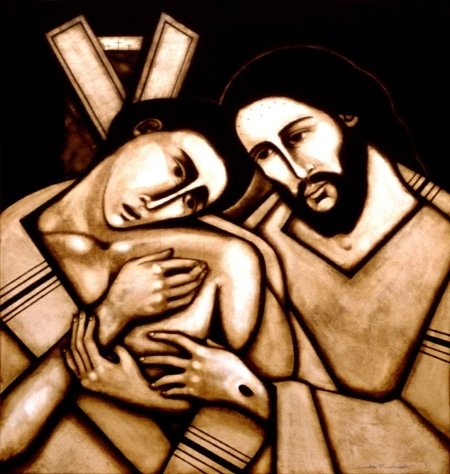
Christological heresies
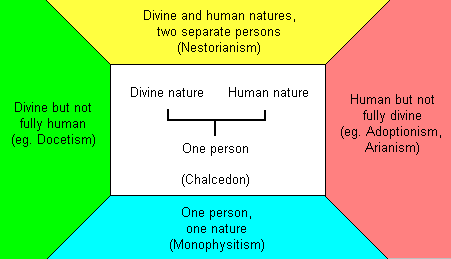
3 The Distinction (15-17)
The distinction
- emphatic "But" (15)
- change in focus
- "is not like" used 2x
Summed up in a word
- Adam's work is "transgression" (15)
- brought to all
- guilt
- death
- Christ's work is called a "gift"
- brings
- grace
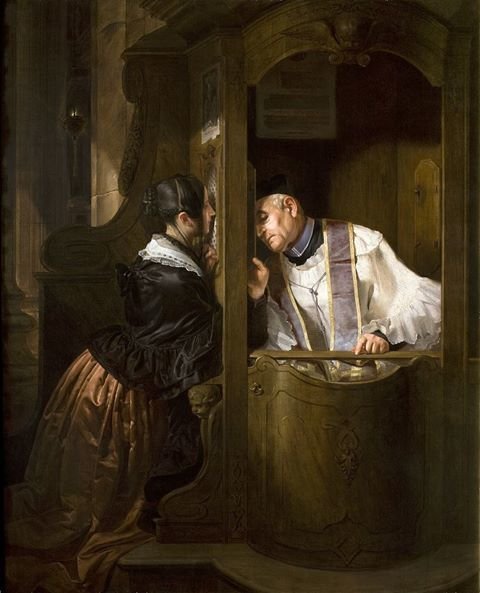

Distinctions in 16
- number
- Adam's act was one sin
- Jesus' act involved many sins
- process
- made many sinners
- dies for the sins of all
- result
- the condemnation of all
- the justification of all
More distinctions in 17
- "much more"
- Adam's sin
- led to the "reign of death"
- brought sin and death on all
- brought life to an end
- Christ's act
- "reign of righteousness in life"
- dethrones death
- enthrones righteousness
- brings eternal life
4 The Result (18-21)
Effect on all
- Paul returns to the subject of the Law
- those who lived before the Law
- died because they sinned in Adam
- sin not imputed without the Law (13)

Grace
- Reason: so that grace could surpass sin
- the Law increased sin
- now sin increases Grace
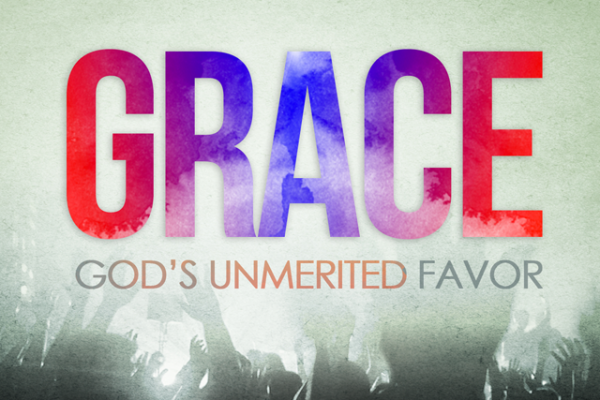
5 Conclusion
First appearances
- unfair to condemn us in Adam
- but this is done to receive us as saints in Christ
- means for justification AND condemnation: imputation
- imputation of Christ's righteousness results in justification
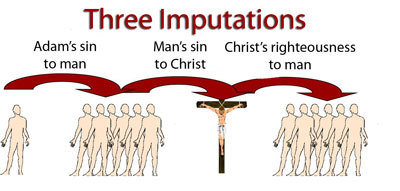
Jewishness
- being of Abraham useless
- being of Adam condemned them
- having the Law did not help
- increased sin
- made it a personal matter
- does not save
- instead declares many to be sinners

James Stifler
Adam is a figure of Christ in just this respect:
that as his one sin brought death to all,
even when there was no personal sin,
so Christ's one act of obedience
brings unfailing righteousness
to those who are in Him,
even when they have no personal righteousness.
Adam and Christ
- bad beginning
- servants of sin
- but now a new beginning
- now servants of righteousness
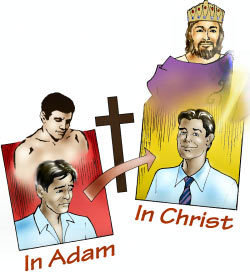
Summary
- God takes sin seriously
- we identify either with Adam or with Christ
- we are guilty of Adam's sin and personal sins
- born again (Jn 3:3)
Next week
- laid the groundwork for Sanctification
- solution for God's righteous wrath
- also solution for the reign of sin and death
- individual sins
- also freedom from the dominion of sin
